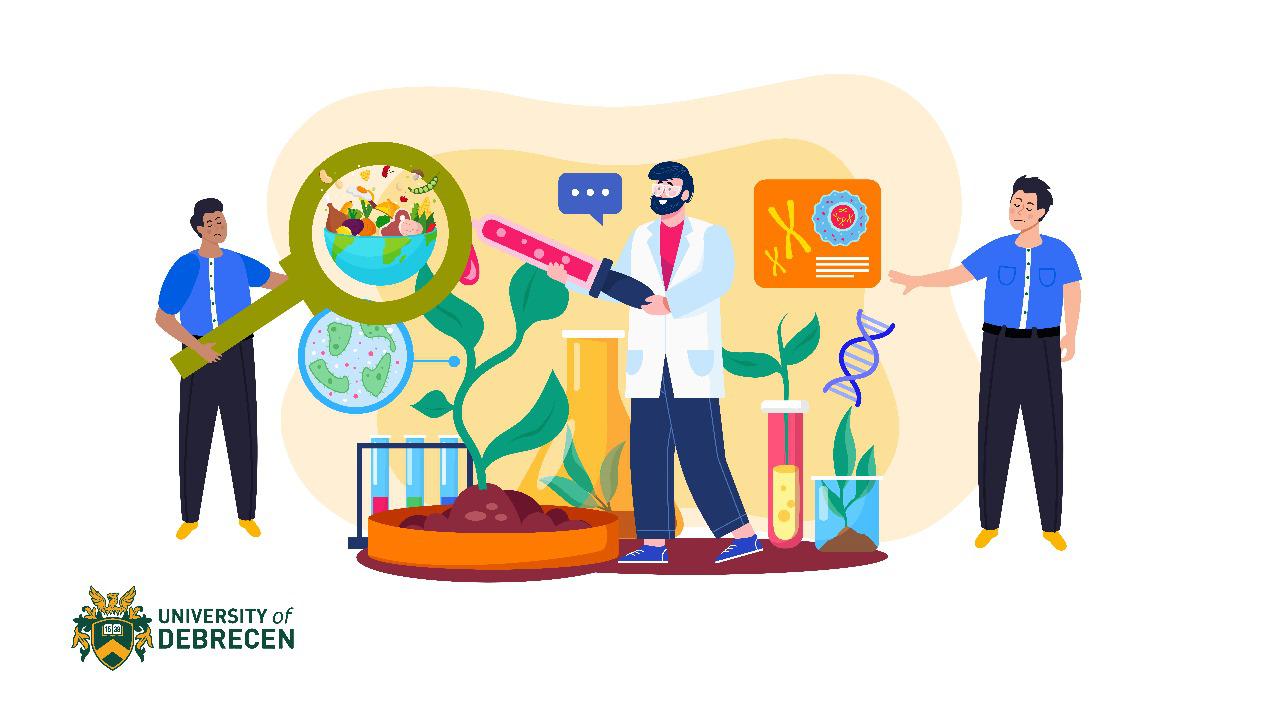The Future of Food Engineering at the University of Debrecen: Innovations and Trends

Iswah Emaan
12 min read
5 Comments
Food engineering is a rapidly growing field in which the design and operation of food processing systems are studied. With the increase in the global population, the need for safe and nutritious food has increased. According to the United Nations, the global population will reach 9.7 billion by 2050, requiring a 70 percent increase in food production. In addition to that, the global food processing market is envisioned to amass around a value of USD 4.5 trillion by 2025, which shows promising growth in the job market itself. So, studying Food Engineering at the University of Debrecen opens various pathways.
In this blog, the future of Food Engineering at the University of Debrecen is discussed as well as innovation related to the industry. By examining these developments, we will understand how food engineers at the University of Debrecen try to overcome the problems of food production concerning safety, sustainability, and efficiency.
Understanding Food Engineering
Food engineering is the science of combining principles from different disciplines such as Engineering, Biology, and Chemistry. In addition, students learn about physical and chemical food properties, food safety, and the technology used in food production. Besides, they study management and economics to better understand the business side of the food industry. This comprehensive approach provides graduates with the necessary preparation to manage issues in the field of modern food production.
The Role of Technology in Food Engineering
Technology is a driving force behind advancements in Food Engineering. Moreover, it analyzes the changes in food production and brings innovation in the processing techniques, equipment, and automation. For instance, new technologies such as high-pressure processing and pulsed electric fields do not affect the safety or shelf life of the food. At the University of Debrecen students get exposed to these technologies and learn about them, so they can go out and develop their careers as people who need technical background and creativity for the job.
Automation and Robotics
The use of automation and robotics is one of the most important trends in food engineering. These technologies enhance efficiency by cutting down labor cost. As a result, tasks like sorting, packing, and quality control are done by automated systems resulting in lesser production time. With the study of Food Engineering at the University of Debrecen, students learn skills that apply to the operation and management of automated systems in food production.

Data Analytics
Another important trend in food engineering is the integration of data analytics. Food companies make data-driven decisions to improve product quality and process. In addition, engineers analyze data from production lines and identify inefficiencies, so they can inform any required changes. Hence, the aim of Food Engineering at the University of Debrecen is to enable students to use data analytical tools in preparing for the future when data will become a key factor in food engineering.
Focus on Sustainability
Nowadays, sustainability is a pertinent concern in the food industry. Therefore, as resources become scarce, food engineers must learn to produce food sustainably. From minimizing waste, and conserving water to using renewable energy sources, this field includes all. Such sustainable practices are central to the University of Debrecen's curriculum, teaching students how to create efficient processes that are also ecologically sound.
Plant-Based and Alternative Proteins
Additionally, the development of plant-based and alternative proteins is a key focus. Now consumers are aware and switching to healthier and more sustainable food options. Consequently, food engineers need to adhere to processing methods to produce these proteins. At the University of Debrecen, students come up with innovative ways of solving this problem, preparing them for a dynamic job market.
Waste Reduction Technologies
Furthermore, waste reduction technologies are becoming important. People waste a large amount of food each day and engineers are discovering creative ways how food byproducts can be recycled to reduce waste. At the University of Debrecen, students receive an education on waste management and resource recovery to tackle this issue.
Global Perspective and Cultural Awareness
Additionally, food engineering is not only a science and technology discipline, but it also involves the study of global food systems. If you pursue Food Engineering at the University of Debrecen, you collaborate with professionals who help students acquire a global perspective. In today’s interconnected world, they must learn about the cultural aspects of food production and consumption.
International Collaborations
With the Food Engineering program at the University of Debrecen, you have the opportunity to work alongside the university’s strong industry partners. As a result, these collaborations enable students to learn from international food engineering practices.
Multidisciplinary Approach
Furthermore, the program advocates for a multidisciplinary approach to food engineering. Students are teamed up with other students from different fields like nutrition and agricultural sciences. In doing so, it also results in innovative solutions with each having a new perspective. Thus, learning to work in different teams prepares students for the challenges of the real-world food industry.
Career Opportunities in Food Engineering
Food engineering at the University of Debrecen opens many career opportunities. The graduates of this University are able to enter numerous areas like food processing, quality assurance, food development, and food safety management. Besides, the demand for food engineers is higher than ever before as industries look for professionals with the ability to create and enhance food systems.
Entrepreneurship
Additionally, graduates have new employment opportunities in the field of food. As several food engineers are starting their businesses, they include sustainable and innovative products. The University of Debrecen fuels the entrepreneurial spirit of its food entrepreneurship candidates by providing them with resources and mentorship.
Research and Development
Quite importantly, research and development (R&D) also have an important role in the future of food engineering. Some companies are investing in R&D to produce new products to improve existing processes. By working as graduates with careers in R&D you can contribute to advancements within the field and make a real impact on where your food comes from.
Conclusion
The future looks bright for the food engineering field at the University of Debrecen, being led by innovations and research redefining the field. A comprehensive education that blends technology, sustainability, and a global perspective prepares students to meet food production challenges. Graduates who enter the workforce will be able to contribute to developments in food processing and solve the food industry problems of today. With these innovations, the University of Debrecen is becoming a pioneer in food engineering, building and cultivating a body of students with the training needed to lead in this crucially important field.
And as we look ahead, the space for food engineering will grow, with more advancements over time for those who are eager to learn about and contribute to Food Engineering, its science, and sustainability.

.jpeg)